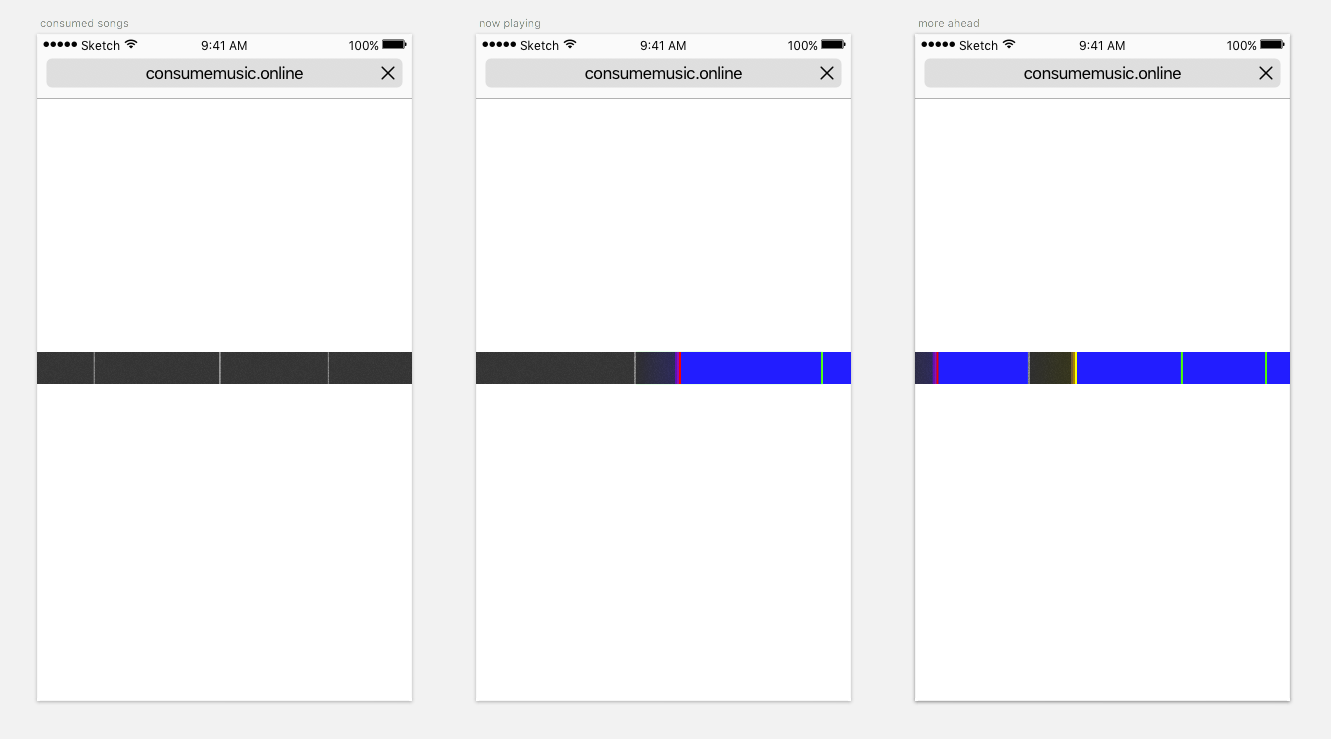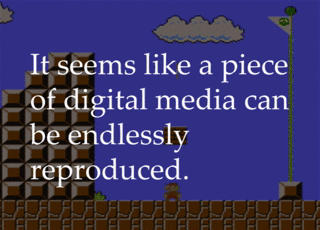I’m working on a site. The URL is http://consumemusic.online. When you go to it, you’ll read something like this:
Turn up your speakers. You are now listening to a sound that will never be heard again.
On June 20, 2015, a user named midi_man posted a link on reddit to the largest midi collection in existence. They had crawled hundreds of midi sites, and assembled virtually all of the files publicly available into one archive. 130,000 files / 3.65Gb of pure midi. This archive represents the cumulative musical achievement of humankind, as well as several animal species.
This site plays the archive from front to back. As each visitor plays part of a song, that portion is consumed and will never be played again by anyone else.
Your browser started playing where someone else left off. But you don’t have to stay here - you can scroll and listen to whatever remains. You can even takeover another listener’s song and kick them off their spot. Everything you hear will be heard once, and only once. Together, we can all burn this one down.
I made up some prototypes in Sketch:

All the songs are in the archive laid out end to end, left to right.
You can scroll horizontally. To the left is the boneyard of all the songs that have been played. To the right are unplayed songs, mostly. The song you’re playing has a red leading edge at the current time. You can click on any unplayed song to start playing it instead.
You can see when someone else is currently playing a song because the edge is yellow. If you click on their song, they’ll get booted to the next available blue space. You’ll pick up where they left off.
The piece is meant to be compared / contrast with how we collectively create and consume media in communities online. It’s an opportunity for the swarm behavior of thousands of people on the internet, usually only imagined or experienced incidentally, to be brought into focus.
There’s something further, though.

But - with the digital, what is also summoned at will are rules and relationships. What if, by setting some rules, we make a digital artifact consumable?
It was here, but then you put it in your body, and now it’s gone. At some point along the way it was transformed into something else. The object is no longer here.
Or…it’s still here, but it has a different state? Or at least the
idea of it is still here, but with a different state attached. Maybe
the experience of it is the only thing that is ever consumed. Even
with an eternal music object, the experience was always consumed.
This site is about how we bracket infinity.
Music, as a cultural entity, seems infinite. All the music in all the earth – now and since forever – who can count it all? But it’s actually not infinite. Music requires people, to create it and to experience it, and there is a finite number of people that have ever lived.
Still, what if we assembled all of the music into a whole, as much as we could at least?
What if we took all of the pieces, that were before so disparate, and by creating relationships between them, formed a mass out of them, that we could treat as one? That you could actually be presented with, that you actually had the means to explore if you had enough time?
Assembling all the midi on the internet is not the same as assembling all the music in the world. The internet doesn’t contain all the music, just like it doesn’t contain all the knowledge, much less all the experience. But the internet was and is the primary vehicle for cheesy midi adaptations of songs, and so this archive is maybe a solid attempt at building a corpus that represents an entirety.
Or maybe it just directs the mind’s eye toward the gap between the real infinity, and our best attempt. But who knows how big that gap is? Because your idea of the real infinite is just an abstraction anyway. Well, this app is just an abstraction too.
But weirdly, this abstraction brings a materiality. First, when you make a digital object consumable, its digital representation takes on a materiality that wasn’t there before. It’s graphical interface no longer represents that thing, it IS that thing. Second, when you bring all of music together into one, its wholeness becomes something you can directly experience, even if it’s so large you have to travel to do so.
This site is about when we say two things are different, and when we say they’re the same.
Music is not infinite. So in your mind, assemble the totality of ALL of music. What’s the difference between that and infinity? Between the all-of-it and the infinite?
Thinking about all of music is tough because music isn’t just the artifacts, it’s also the lived experience of the thing. We typically have one of a couple different situations: 1) Listening to a concert, a live performance that may only exist in that moment, shared together amongst a dozen, a hundred, a hundred thousand people. 2) Listening to recorded music, a static digital artifact of a performance, alone.
consumemusic.online is an inversion of this. Thousands of people together will experience a one-time performance of a digital artifact, a concert that’s thousands of hours long. But formally something weird is happening, because each person will only experience a small piece.
It’s a parallel to our experience of social media. How often have you heard of someone complaining of some phenomenon “on Facebook” which you yourself have not witnessed? And yet we all refer to “Facebook” as if it’s one entity, when it’s really maybe closer to our own little room. Totally unique, totally dynamic, different from everyone else’s and different from one moment to the next. Maybe we don’t appreciate this fact. But if you pull up consumemusic.online and you’re the single solitary person that heard “Hey Jude,” maybe you will.
And if you think about the totality of music from day to day, this is what is happening all along. All of these individual experiences are happening distributed throughout millions of different places, but together they sum up to the sublime reality of what music actually is. No one person gets to experience that though.
When two people each view a work of art, and that work of art shows them each something different, how different does the thing have to be for us to no longer say they saw the same art? If a work’s identity isn’t in the details, what is it in?
Everyone who goes to the site will experience this piece of net art. But will everyone experience it the same? Maybe to prove they won’t, we’ll show each of them something different. Maybe we’ll play them each a different song. And when they come back again, we’ll do the same. Something different.